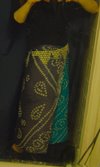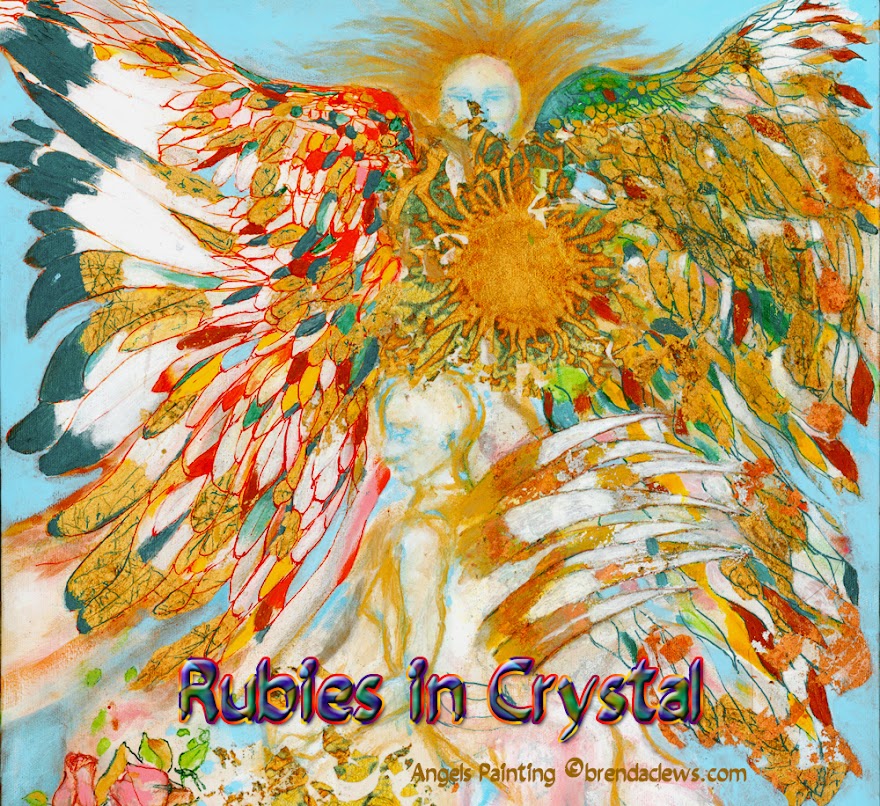Thursday, April 27, 2006
untitled love poem (see comments, suggestions welcome)
You rise out of flat stone
the shield
of your heart.
The moon crosses the sun.
Do we
become light
when we dream?
The folds of your corduroy
like ridges and hollows
furrows where the Spring runoff
sculpts a geology
in a landscape of tundra.
In our Klondike, cross and beams
hold the tunnels we dig through
to find the gold in each other,
rich veins tracing through the rock
like sunlight.
II
Spring is a tendril
of green;
the leaves a papery mass of veins unfolding.
Cliffs of grass by the old mine ripple
in the wind.
We are like those two trees
ancient, weathered, yet
our roots thoroughly
intertwined.
What is
underground
is what holds us.
The deeper passageways
and connections.
III
I wear the crescent moon in my hair,
the cold northern air;
you are the sun buried in the land,
illumined from within.
The sharp edges
in each moment
bind us.
My Adoni, my Aholi,
even in this harsh typography
you are a landscape of love,
a cartography of desire.
©Brenda Clews 2006
Wednesday, April 26, 2006
Update on my life...
I just have to figure out housing, meaning more space, a lot more space than my daughter and I have at present, to move it all into in the next couple of months. Even if housing doesn't happen as soon as that, I'm still okay with the storage company and the monthly rental we agreed on (the original amount, not the $200./month they tacked on once my stuff got to their storage warehouse in Mississauga, a suburb of Toronto).
Do I feel a sense of relief? Not really. More like I'm putting my heavy turtle shell back on and moving slowly ahead. That I can't just 'leave,' 'exit,' 'start over,' but have to continue on. It'll be nice to get my books back; I've missed them. And my clothes, oh yes. And my paintings - I'm not used to such bare walls as I have here. The family photographs. A dining room table. Stereo and TV. Kilim carpets. My Salton espresso/cappucino machine. Ah. And my yoga mat. My whole alter. Large desks. And bed. It's all nice to consider. Not necessary, as I know now, but nice. The comfort of my 17 year old sectional Italian leather couch from the Art Shoppe. The whole panoply unfolds. And my kids are happy that I've decided to reverse the loss, prevent it from happening, and to land, to stay.
Not there quite yet, but I'll figure it out. Along with some magic. For it's always ultimately about magic, isn't it.
Tuesday, April 25, 2006
Alpha Beta of Scripts
Our natural landscapes lie behind our alphabetic typographies. The fonts of our language reflect the pure forms of nature:
Remarkably, the study has concluded that the letters we use can be viewed as a mirror of the features of the natural world, from trees and mountains to meandering streams and urban cityscapes.
The shapes of letters are not dictated by the ease of writing them, economy of pen strokes and so on, but their underlying familiarity and the ease of recognizing them. We use certain letters because our brains are particularly good at seeing them, even if our hands find it hard to write them down. In turn, we are good at seeing certain shapes because they reflect common facets of the natural world.
from: Alphabets are as simple as...
In Arabic I see deserts and mirages, genies, a spirit that is as boundless as the open sky, tents under hot sun and blown by sandstorms, lyrical dwellings sculpted out of baked, whitewashed sandstone; I see the sinewy motion of Middle Eastern belly dancers, the crowded markets of barterers. In Hebraic I see a nomadic people, Hanukkah candles, the flame of an inner deified light. Chinese pictographs are as beautiful and intricate as the detailed landscapes of China, and in them I see also pagodas and monuments; they reveal a complexity of thought that I can only marvel at. If our letters mimic plains, mountains, streams, trees, branches, rocks and are shaped by our natural landscapes, our architecture is most certainly a gesture of the typographies of our alphabets.
We are drawing our world when we write.
Our architectures are our calligraphies writ large.
Meaningful marks on the page, jottings limning our natural environments, our sensory apparatus' translating our world into symbols that we can think through.
Chinese (Mandarin) pictograms and pagodas
(images courtesy of Google :)Monday, April 24, 2006
Dancing Clock
 This inexpensive but clear clock gets a hammock of intricate interlacing metal filligree to tick in. The belly dancing belt that I bought at Dancing Days in Kensington Market has a place to hang.
This inexpensive but clear clock gets a hammock of intricate interlacing metal filligree to tick in. The belly dancing belt that I bought at Dancing Days in Kensington Market has a place to hang.
And the next time I dance to the earthy sounds of African drumming, I can become a tambourine and jingle can't I.

Thursday, April 20, 2006
A Story of Butterfat Cream
I think of the udder of the cow, of pastures, of bees, of lazy country days, even though I know the cows are milked by machines in highly proficient dairy farms.
Of Krishna, the butter thief who would steal and eat this cream by the thimble-full, even though I know the gods of India don't belong among the fierce warrior gods of capitalism.
Of the greening world flowing over its boundaries and seeping into the corporate surfaces of this high tech kitchen on the 20th floor of a skyscraper in the business core of downtown Toronto, even though nothing organic grows in this controlled environment.
Of gulping the pasteurized cream, the entire boxful, finger broken container by container, letting it pour down my chin, over my business suit, splattering, sliding, oozing.
But I don't. I contain myself, wipe my jacket, the counter, the floor, and pluck out one more cream, pull the tab off, pour it into my coffee.
It is enough that I tell the women that it takes me an hour and fifteen minutes to walk home through the city.
They keep coming and asking me each day how it went, my walk, the air, the sun like dreams in the trains they take to and from this building to homes in the outer suburbs.
Wednesday, April 19, 2006
Recycled, a hypertext
RECYCLED by Giselle Beiguelman, 2001.
Postmodernim at its recycled, self-conscious re-construction of rubble (when the text is fully deconstructed surely we finally find the alphabet). A Borgesian script of cyberstream poetry. Everything is second hand, open source. I could play all day in this playground.
I found it through the Electronic Literature Organization:
In “Recycled,” Giselle Beiguelman has taken an “artifact” of electronic technology, the object-follow-cursor feature, and transposed it into a moving metaphor. Across a field of bright yellow, the letters RECYCLED enter the screen, track the cursor, disappear if gathered, and finally clump together and vanish, only to begin migrating, again, from the margins. The letters, then, are constantly being “recycled” — and the reader is the agent in effecting the transformation. Beiguelman’s piece is an example of the way in which minimal text can join with technological trope in a “reading” of e-lit.
Tuesday, April 18, 2006
Hypertextualities of Web Browsing
an exceeded body
nodes
subnodes
internal links
a map of possibilities
on an ocean of connections
can I write in this
dislocated place
remember
a sky swept
blue by clouds
non-sequential hypertext
departures & links
pixelated pages
of information
on randomly
connected
topics
a web of links
an abundance without
any centre to hold it
but my inclination to anchor
Woman with Flowers 7.1
(7th sketch in series, first iteration of this one) Woman with Flowers Flowers, props upholding the woman. The flowers, fragrant, imaginar...

-
The Buddha says: “ You cannot travel the path until you have become the path itself .” The path is uncertain. Uncertainty is the guiding for...
-
What if relationships are the primary ordering principle? What if the way relationships are ordered clarify, explain, and instruct us on th...
-
direct link: Tones of Noir music: Alex Bailey, ' Piano Improvisation No 7 .' Do poems wait to be born? A poem whittled out of t...

